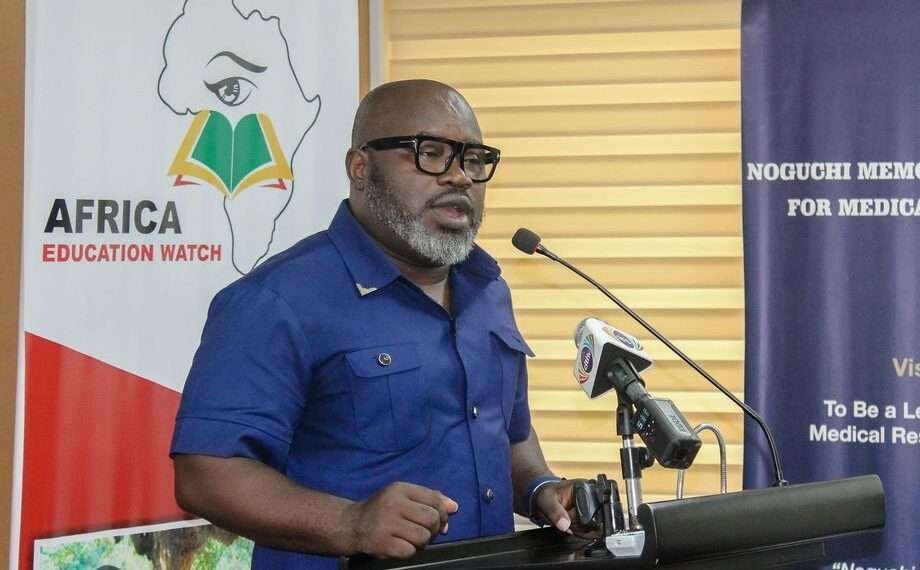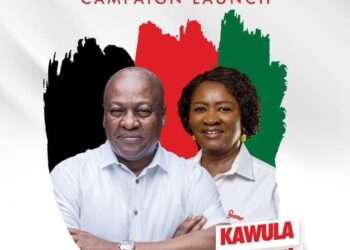Executive director of the Africa Education Watch (Eduwatch), Kofi Asare, has called on government to abandon the idea of procuring over a million laptops for senior high school students in the country, describing it as ill-informed.
According to him, Eduwatch and the Ghana National Education Campaign Coalition (GNECC) and the Civil Society Organisations
(CSOs) Platform on Sustainable Development Goals (SDG) represent over 500 organisations advocating spending efficiency and equitable financing of education in Ghana.
He revealed that Vice President, Dr Mahamudu Bawumia’s announcement at the opening of the 2023 Annual New Year School and Conference at the University of Ghana, on government’s intention to distribute free tablets to all SHS students to facilitate access to e-textbooks, past questions, and other relevant learning content and his iteration on the subject four months after will not augur well for students.
Mr Asare explained that there is a modicum of research to establish the fact that, while laptops are useful learning resources that expose learners to an ICT culture and enable access to other relevant digital learning content, they cannot replace printed textbooks.
Additionally, he noted that the complementary role laptops play with textbooks is affirmed in international best practices in education. However, he indicated that years after going digital in high schools, the governments of many advanced countries continue to provide printed textbooks to facilitate learning.
As a consequent, he iterated that government’s decision to provide laptops cannot replace printed textbooks due to the level of reliability of printed textbooks over laptops.
“We, the undersigned CSOs submit that e-textbooks can never replace printed textbooks, but rather complement them. We further conclude that plans to procure 1.3 million laptops for SHS students are ill- informed, and not backed by any feasibility study, nor informed by education objectives.”
Kofi Asare
Government urged to practice austerity
Furthermore, Mr Asare stated that Ghana has just entered an IMF programme, launching the economy into austerity and the Ministry of Finance has responded to the austerity era with expenditure cuts to basic education and related budgets and limitations imposed on the hiring of teachers and education workers.
Owing to this, he explained that plans to spend over a billion cedis to procure 1.3 million laptops for SHS students to replace printed textbooks, in a period of adequate supply of printed textbooks in SHS does not reflect austerity spending.
Also, he reiterated that the procurement of these laptops contradicts international best practice in the use of laptops in schools and do not represent efficient and prioritized use of public funds in the face of staggering evidence of textbook and desk deficits in basic schools.
“Plans to spend over a billion cedis on laptops for e-textbooks for SHS students at a time there are adequate printed textbooks in SHS, are inconsistent with the austerity period Ghana finds itself in, more so when brutal cuts have been inflicted on the basic education budget.”
Kofi Asare
The executive director of Eduwatch underscored that the Ministry of Education, Ghana Education Service and SHS cannot manage 1.3 million laptops based on past and present evidence of poor management of ICT facilities and items.
As part of the CSOs recommendations, he called on the government to immediately discontinue the initiative, and ensure that basic schools have the full complement of textbooks.
To pursue digital learning in SHS, he revealed that the government should invest in ICT libraries in SHS, and strengthen the quality and reliability of internet services and maintenance of ICT equipment in SHS.
“While CSOs are in total support of government’s education transformation agenda through among others digital inclusion within the public education system, the approaches we adopt must reflect spending efficiency, equitable and prioritized spending, especially in this period of austerity where the education budget has been significantly cut down to below the minimum international benchmark of 15 per cent.”
Kofi Asare





















